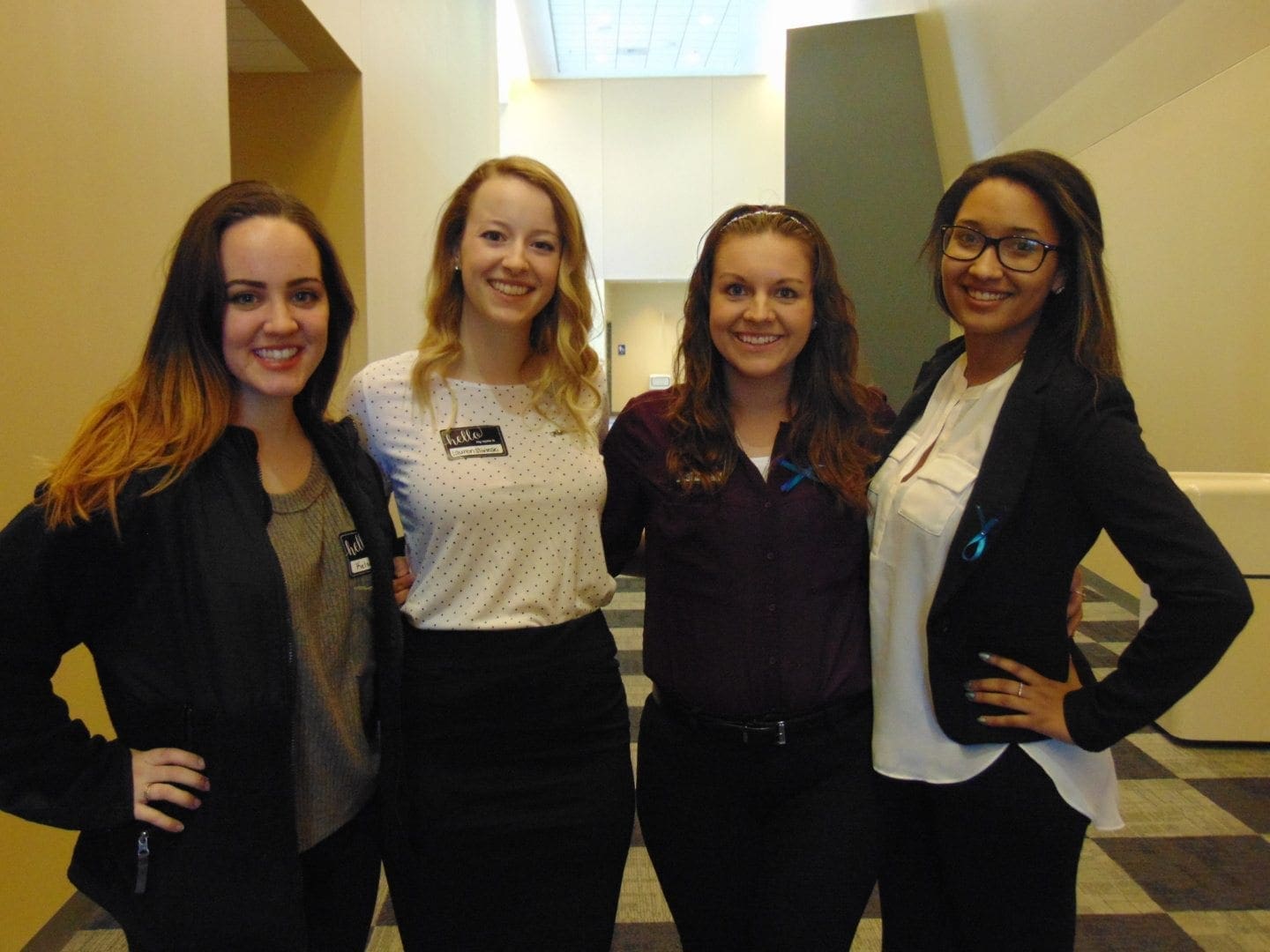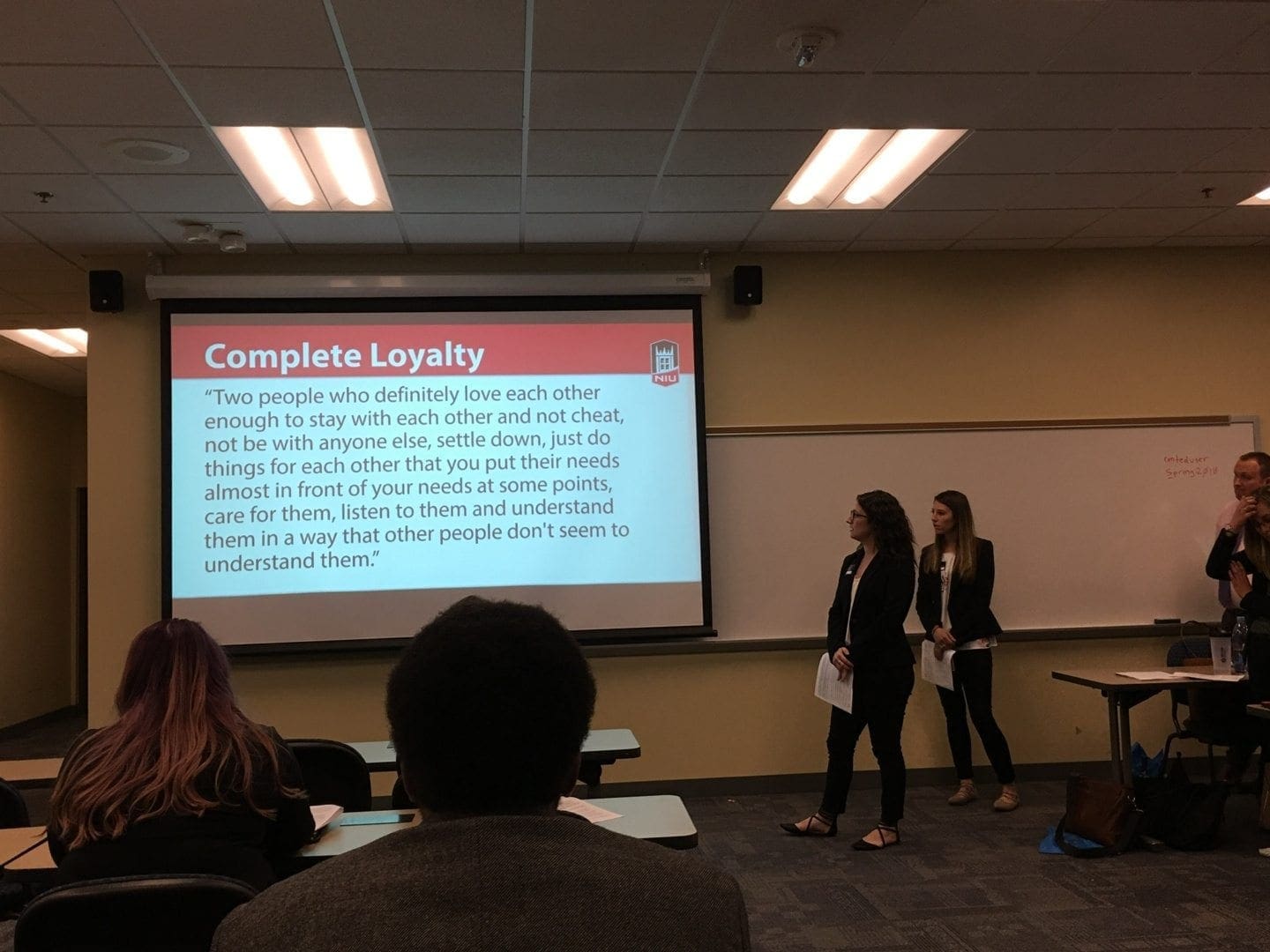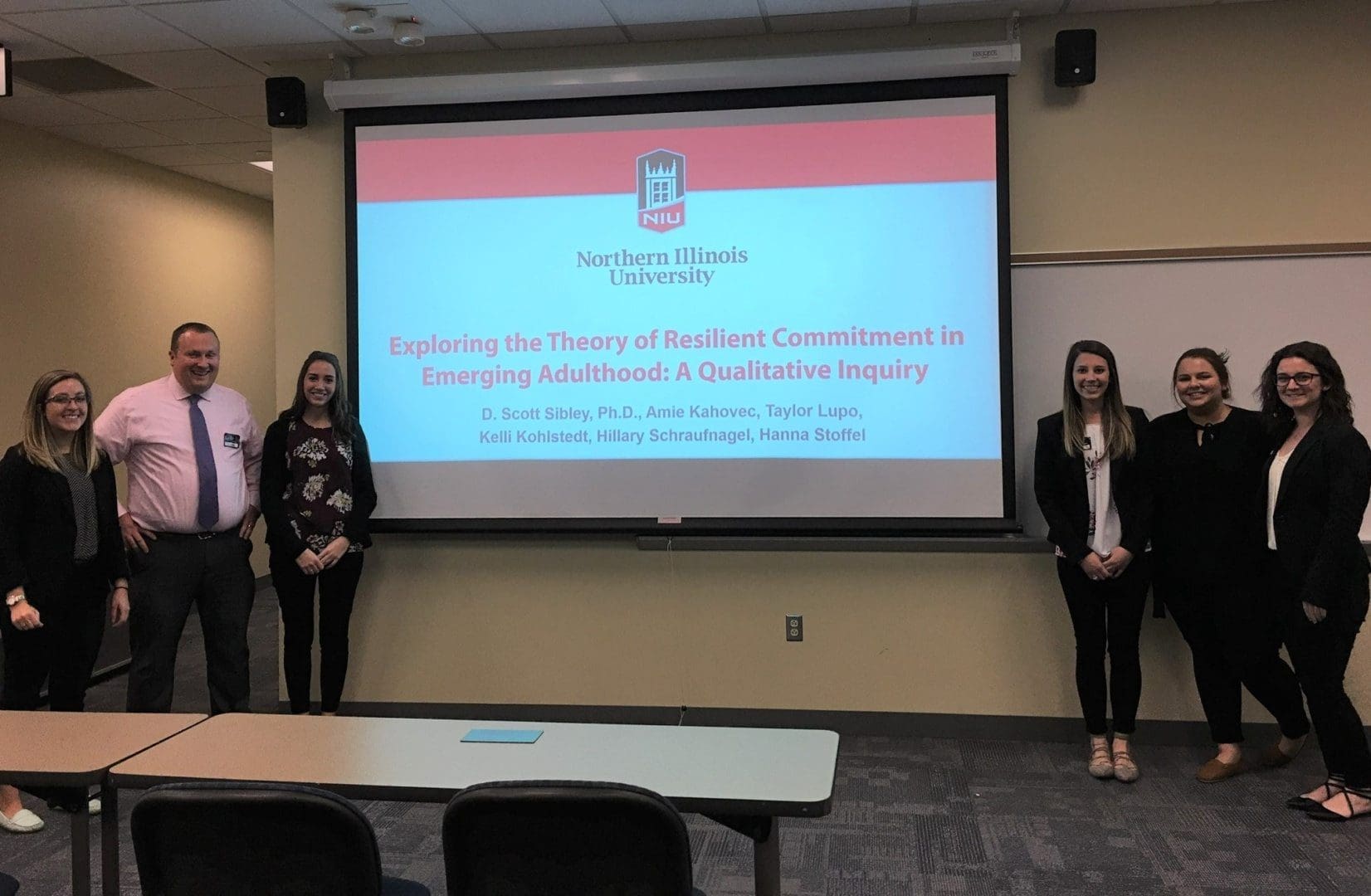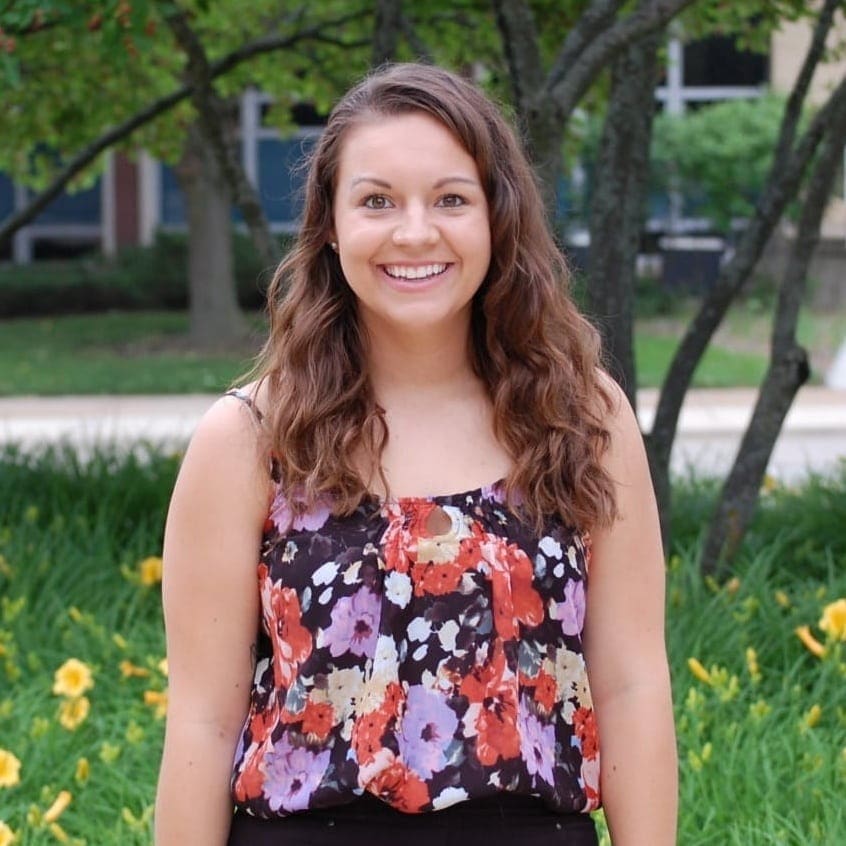On April 27th, ten members on our research team attended the Illinois Council on Family Relations (ILCFR) 2018 Annual Conference in Normal, Illinois at Heartland Community College. Dr. Sibley and five our research team members (Amie Kahovec, Kelli Kohlstedt, Taylor Lupo, Hillary Schraufnagel, Hanna Stoffel) presented “Exploring the Theory of Resilient Commitment in Emerging Adulthood: A qualitative Inquiry.” This research is based off of data collected during Dr. Sibley’s dissertation at Kansas State University, and highlights the theory of resilient commitment. You can view photos taken by our research team at ILCFR 2018 in our Conference Photo Gallery.
We started our morning with a two-hour road trip in two university vans. We enjoyed delightful donuts and chatted the whole way. When we arrived, we checked in, ate some breakfast and started our day. The conference keynotes speaker was Robin Fretwell Wilson who is a law professor at the University of Illinois. During the conference five breakout sessions and a panel were offered along with a poster presentation that showcased some of the great research faculty and students are doing in Illinois (and a few surrounding states). Each session contained two presentations that the allowed for the members of the conference to choose from. Our presentation was featured last at the fifth breakout session.

At the beginning of the presentation Dr. Sibley discussed his own personal experience with parental divorce and read part of his personal account from a recent blog post. This provided a foundation to introduce the theory of resilient commitment and to discuss how emerging adults who have experienced parental divorce are not destined for failure in their own relationships. Dr. Sibley then discussed some of the recent research regarding emerging adults and their attitudes about marriage and the impact of parental divorce.
- RQ1: How do unmarried emerging adults define commitment in romantic relationships and how have they developed those definitions?
- RQ2: How are emerging adults make meaning of the positive and negative examples of commitment they have observed?
- RQ3: In what ways do emerging adults want to behave similarly or differently in their relationships compared to relationships they have observed in their families of origin?
Amie Kahovec, Kelli Kohlstedt, Taylor Lupo, Hillary Schraufnagel, and Hanna Stoffel then presented the method and results of this research study. The purpose of this qualitative study was to explore how emerging adults (18-29 year olds) define commitment in romantic relationships and have created meaning from the positive and negative examples of commitment they have witnessed. After analyzing the data two categories emerged with the following themes:
1. Construction of Commitment
- Complete Loyalty,
- Investment in the Relationship
- Continual Communication
- Parental Influence
2. Meaning Making
- Discernment of Romantic Relationships
- Working to Be Different
- Learning What to Do
- Unitedly Persevere
- Prioritize the Relationship
- Consider your Partner
- Substantial Effort
- Have Fidelity

These results extend our knowledge about the model of resilient commitment, and the critical purpose of meaning making. Implications for intervening with emerging adults to strengthen future romantic relationship stability were discussed. This research supports the findings of Sibley et al. (2015) on how emerging adults construct their definitions of commitment in romantic relationships to an unmarried sample.
In all the conference was a success and was a wonderful education experience! It was a great opportunity to meet other faculty and students in Illinois who are researching and supporting families. We gathered information on other research topics and gained experience on presenting our own research in front of an audience. We had a chance to support our fellow research team members while they presented and got a good feel for what to expect next year. We enjoyed attending ILCFR 2018 and look forward to next year!
References
- Sibley, D. S. (2015). Exploring the theory of resilient commitment in emerging adulthood: A qualitative inquiry. Doctoral dissertation. Retrieved from http://krex.k-state.edu/dspace/bitstream/handle/2097/18950/
- Sibley, D. S., Springer, P. R., Vennum, A., & Hollist, C. S. (2015). An exploration of the construction of commitment leading to marriage. Marriage & Family Review, 51, 2, 183-203.
Hi, I’m Jamye! I’m a junior Family Social Services Major with a minor in Psychology. I would like to continue my studies at Northern Illinois University and obtain my Masters in Marriage and Family Therapy. In my free time, you can find me doing Zumba or watching Netflix. Thanks you visiting our blog!


